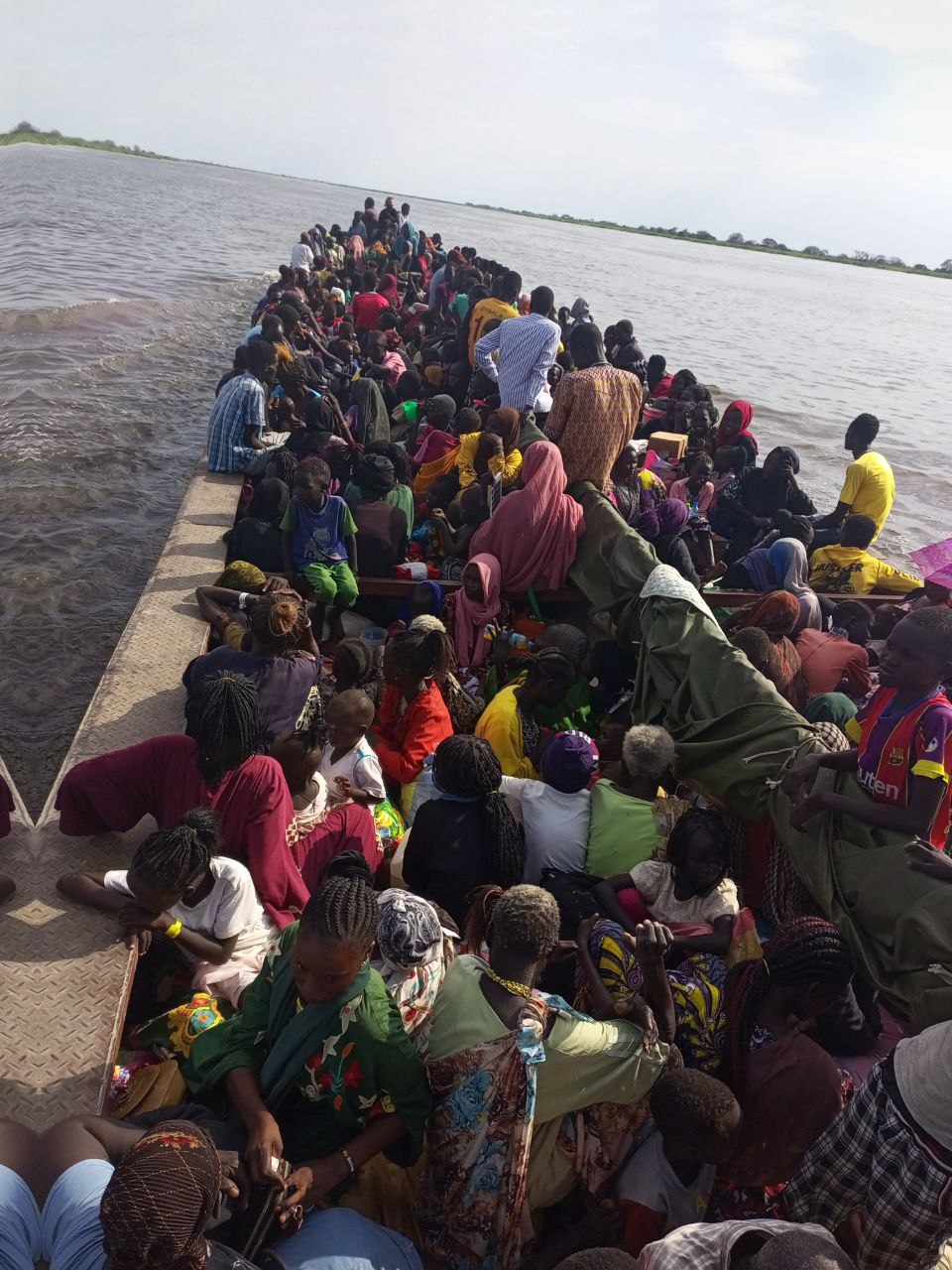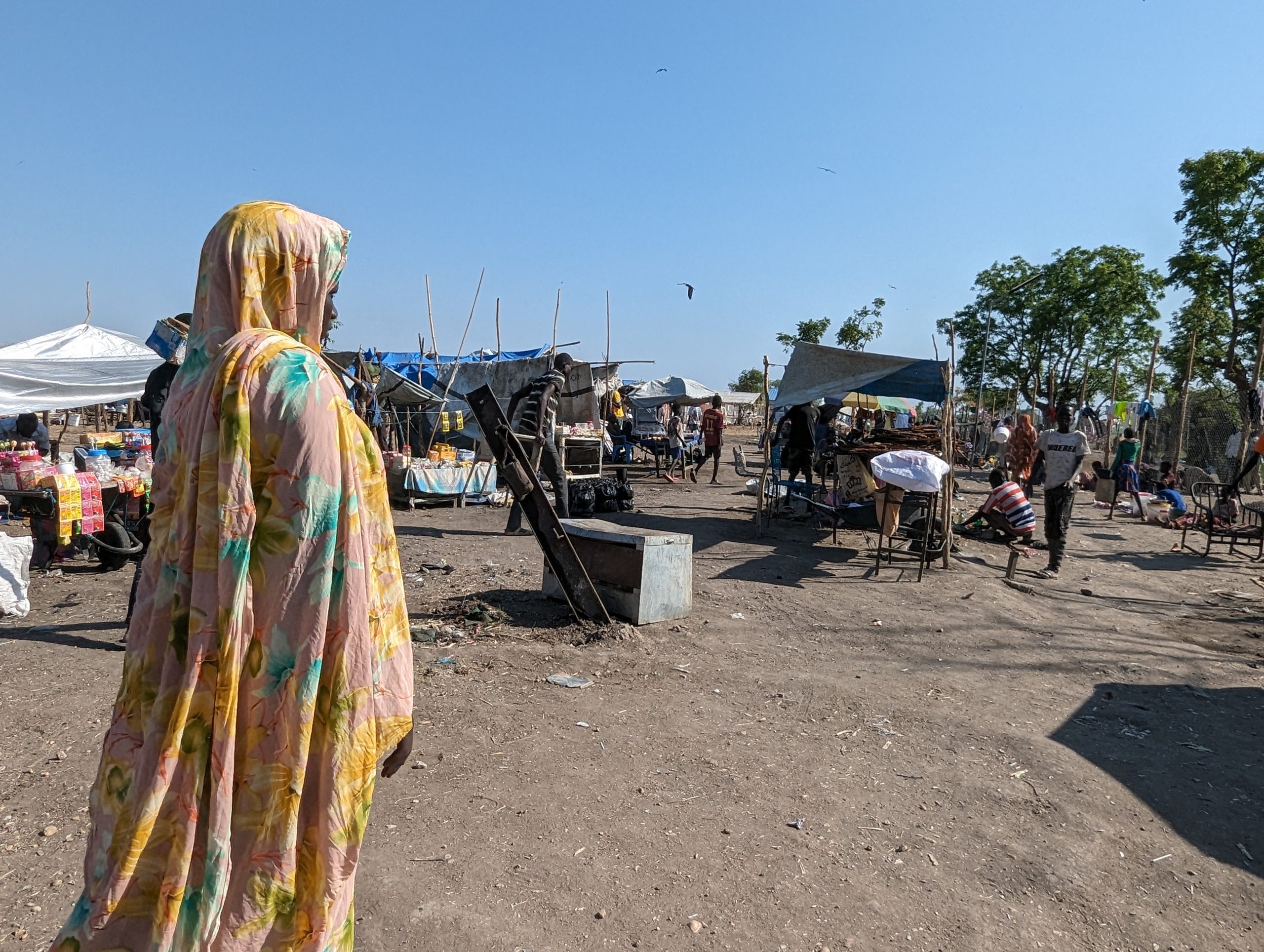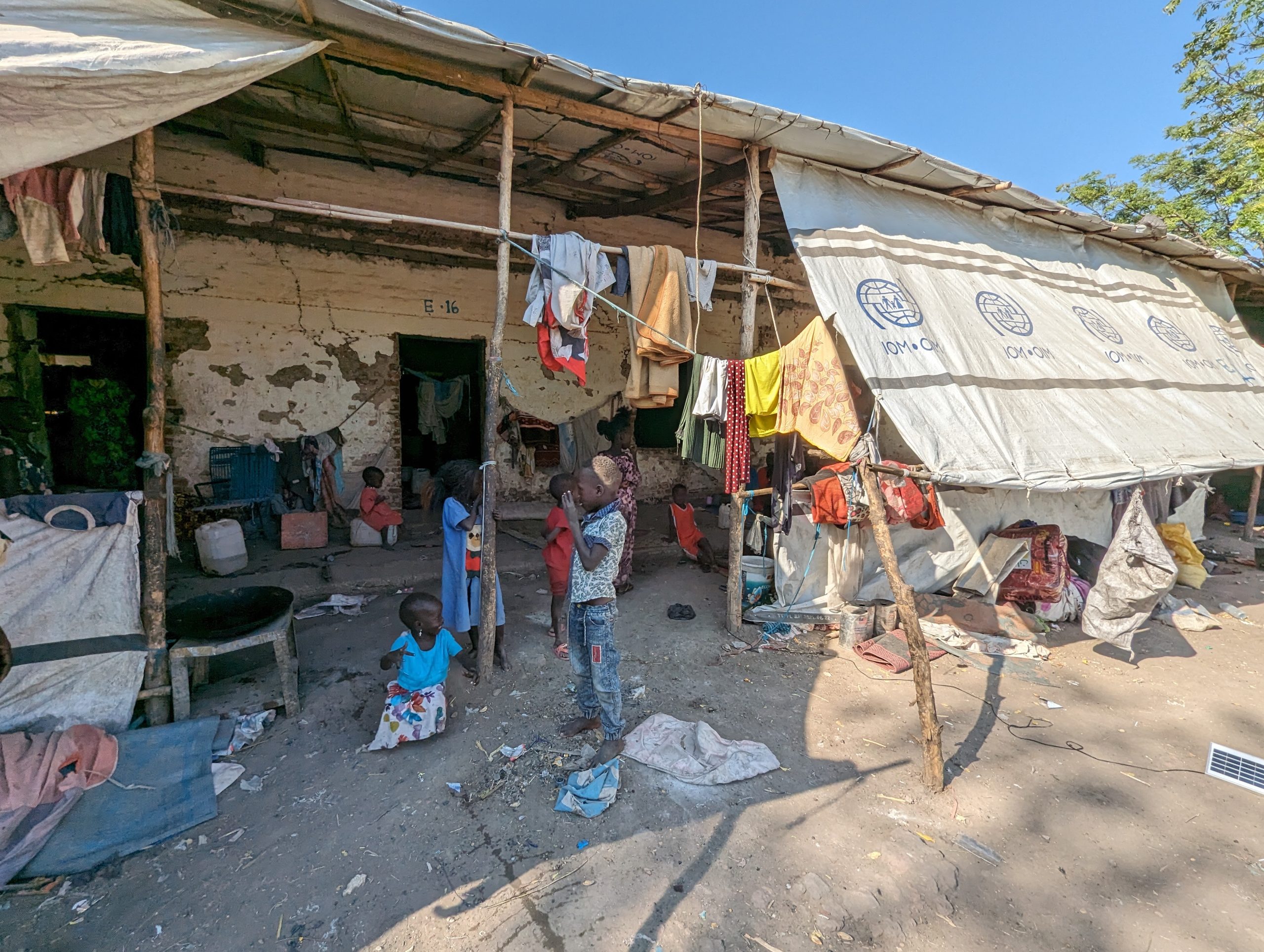
“Sudan is facing one of the world’s worst humanitarian crises. The ongoing conflict is hitting civilians the hardest, in utter violation of humanitarian law. In addition to the bombings, massacres and sexual violence, people have been dying of hunger and cholera. And yet nothing is said about their plight, while humanitarian aid is chronically underfunded.” Fabrizio Cavalletti, coordinator of Caritas Italy’s assistance programmes in Africa, has just returned from South Sudan, home to at least half a million refugees fleeing the conflict in Sudan. Altogether, 10 million people have fled their homes, including 2 million who sought safety in neighbouring countries, mainly Chad and South Sudan. More than 25.6 million people are in need of humanitarian assistance. The death toll is estimated at between 20,000 (WHO figures) and 150,000 (based on U.S. data).
Sudan is embroiled in a violent civil war that erupted on 15 April 2023 between the Sudanese Armed Forces (SAF) and the Rapid Support Forces (RSF), which originated from the notorious Janjaweed militia that massacred civilian populations in Darfur in 2003.
The country is virtually divided into three parts: the SAF controls most of the Nile River corridor and the Red Sea coast with the Port of South Sudan, where oil-laden ships leave from South Sudan. The RSF controls some south-western states and nearly all of Darfur states, while several rebel groups have the upper hand in other parts of the country. All are seeking to control maritime traffic, the waters of the Nile River, gold mines, oilfields and other natural resources.
 “Ethnic cleansing and crimes against humanity.” Humanitarian organisations denounced “ethnic cleansing and crimes against humanity” committed by the RSF and its allied militias, notably in West Darfur ( including by Arab militias in Darfur). In the last days of September, an RSF paramilitary attack on a market in the Sudanese town of El-Fasher, the capital of North Darfur, killed 18 people. In mid-September, there was another massacre that left 40 civilians dead in a village in central Sudan’s Gezira State. At least 30 children were killed or wounded by shelling in the town of Sennar, UNICEF reported a few days ago, probably by SAF. The circumstances of an alleged air strike on the UAE embassy in Khartoum on 30 September remain unclear. A few days earlier, UN Secretary-General Antonio Guterres had voiced his ”concern about the escalation”.
“Ethnic cleansing and crimes against humanity.” Humanitarian organisations denounced “ethnic cleansing and crimes against humanity” committed by the RSF and its allied militias, notably in West Darfur ( including by Arab militias in Darfur). In the last days of September, an RSF paramilitary attack on a market in the Sudanese town of El-Fasher, the capital of North Darfur, killed 18 people. In mid-September, there was another massacre that left 40 civilians dead in a village in central Sudan’s Gezira State. At least 30 children were killed or wounded by shelling in the town of Sennar, UNICEF reported a few days ago, probably by SAF. The circumstances of an alleged air strike on the UAE embassy in Khartoum on 30 September remain unclear. A few days earlier, UN Secretary-General Antonio Guterres had voiced his ”concern about the escalation”.
The rape of women is widespread, while villages are burned and looted. Many women have been abducted and forced into marriage, sexual slavery and domestic servitude. Health workers face attacks and violence from both armies, preventing humanitarian aid from reaching local communities.
 Caritas Italy’s humanitarian response is carried out within the international Caritas network, in partnership with ACT Alliance, a network of humanitarian organisations linked to the Christian Protestant Church. The total budget for the assistance programme for displaced persons amounts to EUR 2 million, “but so far only 30% of the budget has been funded,” says Cavalletti.
Caritas Italy’s humanitarian response is carried out within the international Caritas network, in partnership with ACT Alliance, a network of humanitarian organisations linked to the Christian Protestant Church. The total budget for the assistance programme for displaced persons amounts to EUR 2 million, “but so far only 30% of the budget has been funded,” says Cavalletti.
Caritas Italy made an appeal and launched a fundraising campaign in April and has so far managed to raise €300,000.
The programme includes helping displaced people and communities with cash grants in places where the banking system is still operational,” he explained. “We are providing drinking water, hygiene kits, and there are plans to rehabilitate water systems and build wash basins and latrines. There are also plans to set up shelters for women and minors and for victims of violence, including the possibility of reporting abuse.”
In all, 1.500 families have received assistance, but the goal is to support 3.000 families.
Relief is being provided in several Sudanese states, including North Darfur, North Kordofan, Gedaref, Nile, White Nile and, to a lesser extent, Khartoum, which is controlled by the RSF. Faced with a myriad of difficulties, most humanitarian agencies have moved to Port Sudan in order to continue their activity. Besides the lack of security and the warring sides blocking humanitarian aid, we have to deal with the hurdle of cumbersome bureaucracy.
 “Although it’s a power struggle between generals to control territory and resources,” notes Cavalletti, “Darfur continues to be ravaged by ethnically motivated violence. RSF was created in 2003 from among the militias recruited to carry out ethnic cleansing. Although it is hardly mentioned, it should be remembered that in 2016 Europe, including Italy, signed and financed the Khartoum Agreement with former president Omar al Bashir (indicted by the International Criminal Court for his role in the 2003 genocide and crimes against humanity in Darfur, Ed.’s note), to counter the influx of migrants.” That is why
“Although it’s a power struggle between generals to control territory and resources,” notes Cavalletti, “Darfur continues to be ravaged by ethnically motivated violence. RSF was created in 2003 from among the militias recruited to carry out ethnic cleansing. Although it is hardly mentioned, it should be remembered that in 2016 Europe, including Italy, signed and financed the Khartoum Agreement with former president Omar al Bashir (indicted by the International Criminal Court for his role in the 2003 genocide and crimes against humanity in Darfur, Ed.’s note), to counter the influx of migrants.” That is why
there are also external responsibilities”.
And although the UN Security Council agreed in mid-September to extend sanctions against the perpetrators of the civil war, including an arms embargo, “the shipments of weapons continue,” Cavalletti said. This suspicion was confirmed by a recent report by Human Rights Watch, which provided evidence of the acquisition of foreign-made weapons and military equipment by the RSF and the SAF.
It appears that the international community is reluctant to end the conflict or provide funding for humanitarian aid.”












